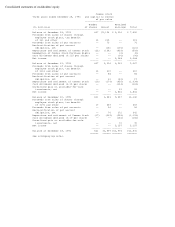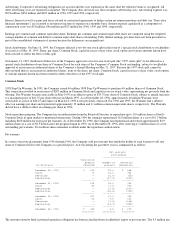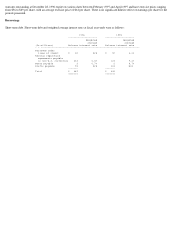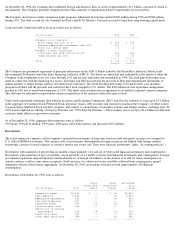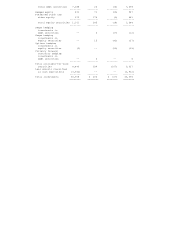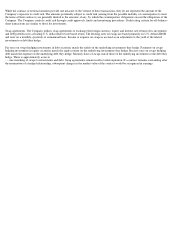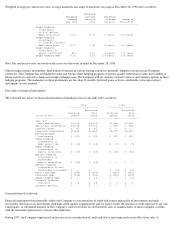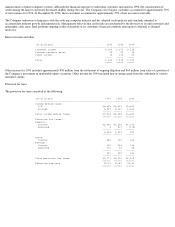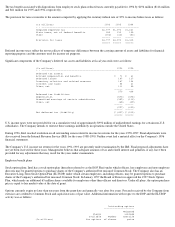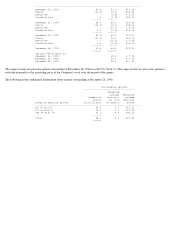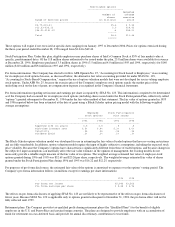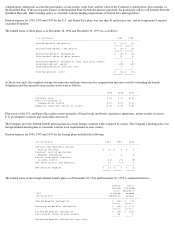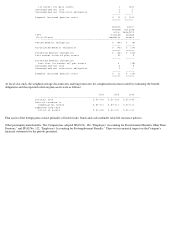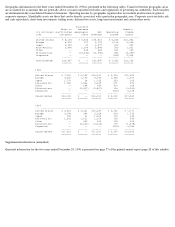Intel 1996 Annual Report Download - page 54
Download and view the complete annual report
Please find page 54 of the 1996 Intel annual report below. You can navigate through the pages in the report by either clicking on the pages listed below, or by using the keyword search tool below to find specific information within the annual report.While the contract or notional amounts provide one measure of the volume of these transactions, they do not represent the amount of the
Company's exposure to credit risk. The amounts potentially subject to credit risk (arising from the possible inability of counterparties to meet
the terms of their contracts) are generally limited to the amounts, if any, by which the counterparties' obligations exceed the obligations of the
Company. The Company controls credit risk through credit approvals, limits and monitoring procedures. Credit rating criteria for off-balance-
sheet transactions are similar to those for investments.
Swap agreements. The Company utilizes swap agreements to exchange the foreign currency, equity and interest rate returns of its investment
and debt portfolios for a floating U.S. dollar interest rate based return. The floating rates on swaps are based primarily on U.S. dollar LIBOR
and reset on a monthly, quarterly or semiannual basis. Income or expense on swaps is accrued as an adjustment to the yield of the related
investments or debt they hedge.
Pay rates on swaps hedging investments in debt securities match the yields on the underlying investments they hedge. Payments on swaps
hedging investments in equity securities match the equity returns on the underlying investments they hedge. Receive rates on swaps hedging
debt match the expense on the underlying debt they hedge. Maturity dates of swaps match those of the underlying investment or the debt they
hedge. There is approximately a one-to
- - -one matching of swaps to investments and debt. Swap agreements remain in effect until expiration. If a contract remains outstanding after
the termination of a hedged relationship, subsequent changes in the market value of the contract would be recognized in earnings.




